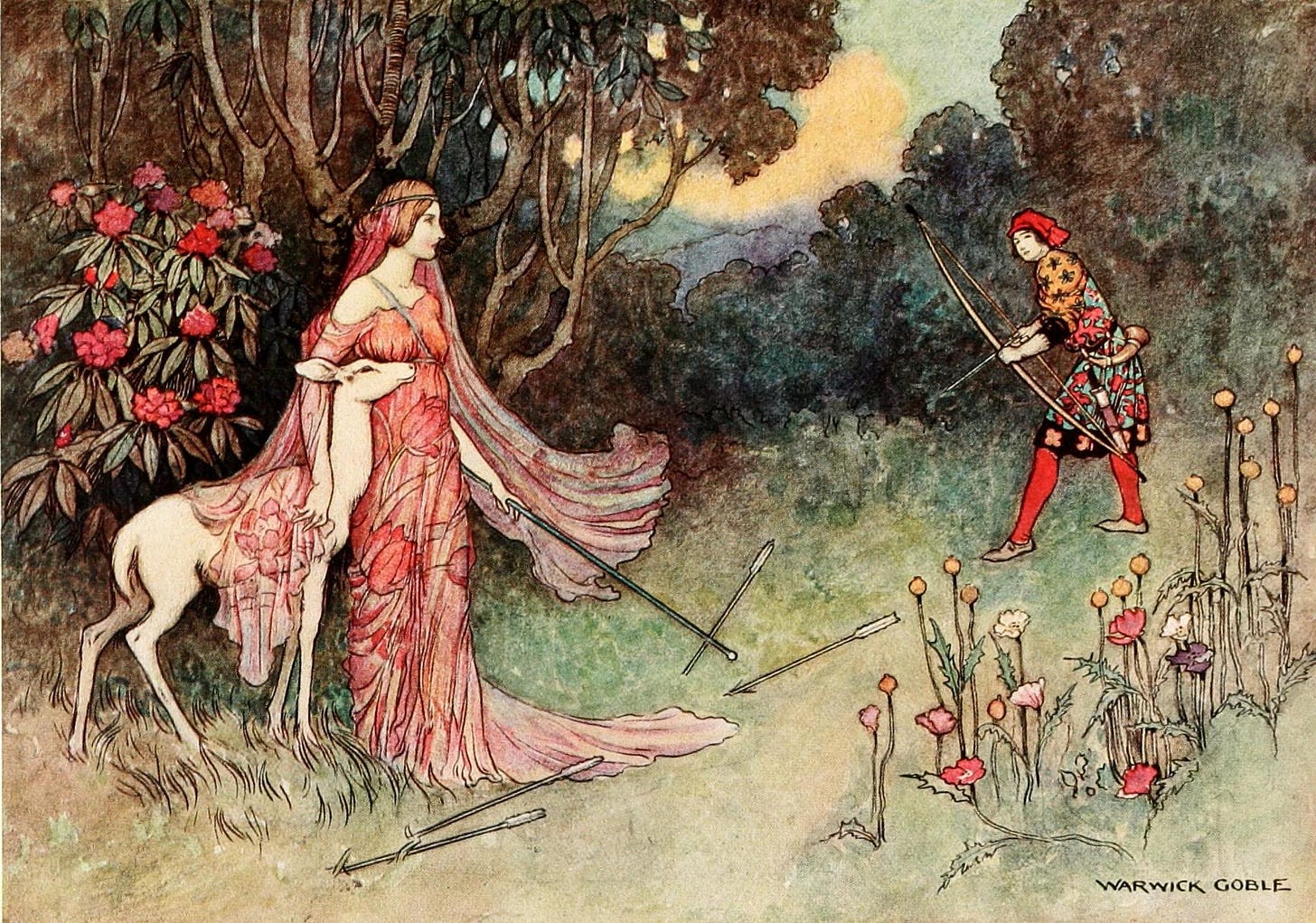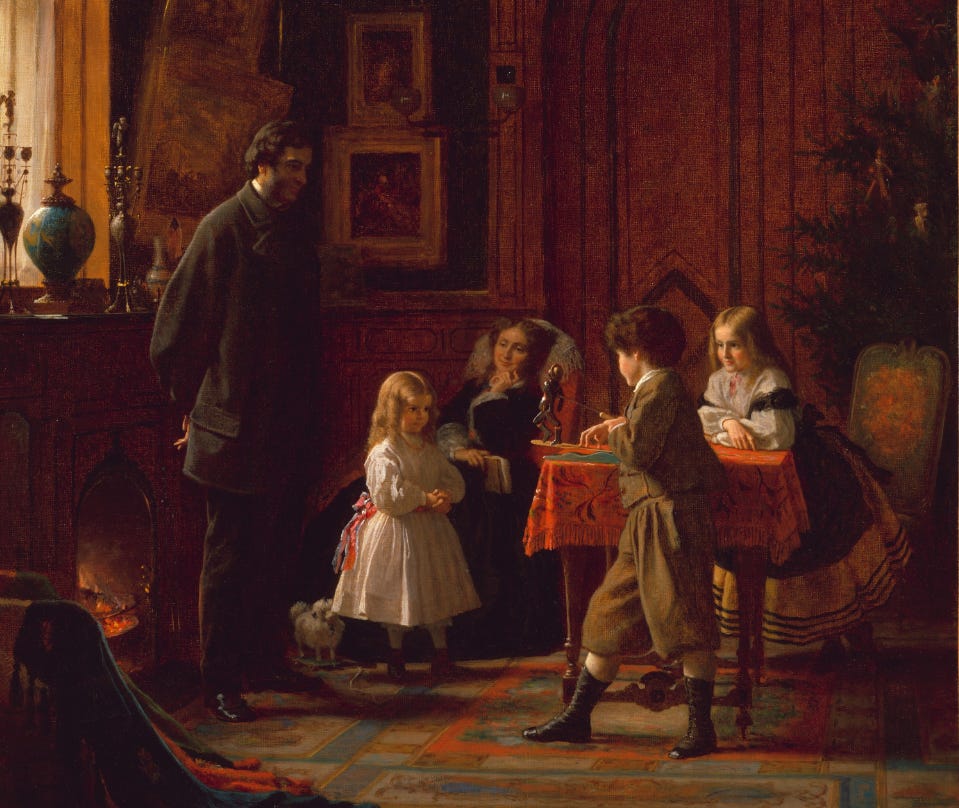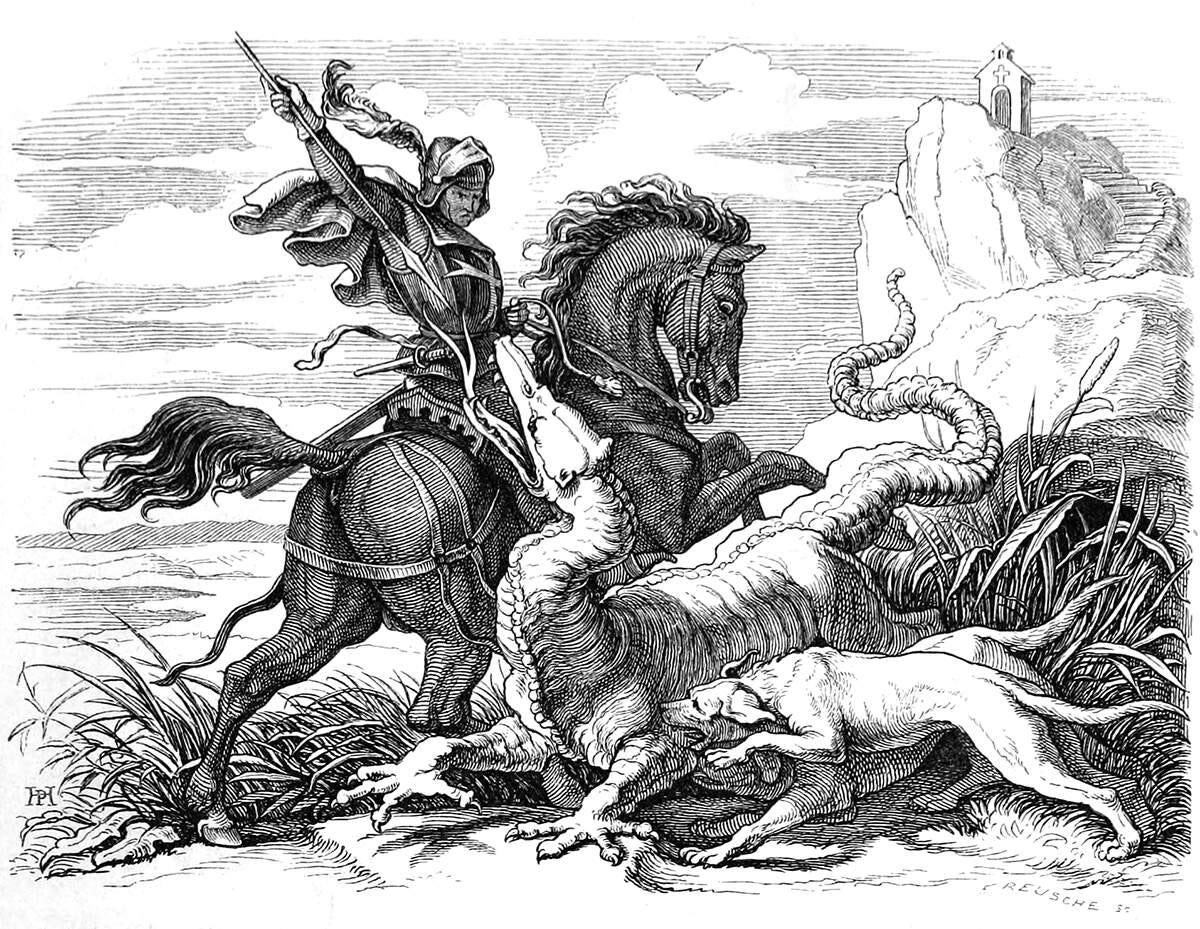The Man Who Saw the World Upside Down
G.K. Chesterton and the art of seeing clearly...
How did a portly English journalist become the master of turning conventional wisdom on its head?
G.K. Chesterton is widely considered one of the most original thinkers of the last century. While his contemporaries saw the world through the lens of progress and sophistication, Chesterton insisted on looking at everything upside down, sideways, and inside out until the truth came tumbling into view.
Here's how this master of inversion saw the world and can teach us to see our world with fresh eyes…
Reminder: you can get tons of useful members-only content and support our mission for a few dollars per month 👇
Two full-length, new articles every single week
Access to the entire archive of useful knowledge that built the West
Get actionable principles from history to help navigate modernity
Support independent, educational content that reaches millions
The Lunatic and the Logician
Chesterton's approach to truth began with a startling observation: the madman and the rationalist suffer from the same disease. They both have perfect logical systems that explain everything — except reality.
As he wrote in Orthodoxy:
"The madman is not the man who has lost his reason. The madman is the man who has lost everything except his reason." Orthodoxy
Where others celebrated pure logic as humanity's highest achievement, Chesterton saw it as a trap. He argued that common sense, tradition, and paradoxes were often more reliable guides to truth than “flawless reasoning” if it begins from a false premise.
This insight led him to champion the ordinary person's wisdom against the expert's expertise, and to find profound truths in nursery rhymes while detecting dangerous nonsense in university lectures.
The Democracy of Fairy Tales
While progressive thinkers dismissed fairy tales as primitive superstition, Chesterton saw them as humanity's most sophisticated moral education. He saw eternal wisdom packaged in a memorable form.
Chesterton argued that fairy tales teach children the most important truths:
Dragons exist and can be defeated.
Courage matters more than strength.
The humble often triumph over the mighty.
The world contains both genuine evil and real goodness.
"Fairy tales do not tell children the dragons exist. Children already know that dragons exist. Fairy tales tell children the dragons can be killed."
By taking seriously what sophisticated society dismissed, Chesterton revealed how upside-down our priorities had become. In a sense, society had become overeducated to the point where they forgot their first education.
The Heretic's Guide to Orthodoxy
In an age when rebellion was fashionable and tradition was suspect, much like today, Chesterton performed his greatest inversion: he rebelled by defending orthodoxy.
His contemporaries thought themselves daring for rejecting ancient Christian beliefs, but Chesterton argued that the truly brave act was to believe them. Every generation considers itself revolutionary in its own way. Few are willing to take up the task their fathers left them. What passes for independence of thought is often just conformity.
The real nonconformist, Chesterton suggested, was the person willing to stand with the accumulated wisdom of centuries against the passing fads of the moment.
"We have found all the questions that can be found. It is time we stopped looking for questions and started looking for answers." Orthodoxy
This perspective allowed Chesterton to defend seemingly outdated ideas as true revolutionary acts against the tyranny of the present ideas.
The Paradox of Gratitude
Perhaps Chesterton's most profound inversion concerned the nature of gratitude itself.
Modern philosophy taught that the material world was either meaningless (nihilism) or something humans deserved (socialism), Chesterton saw existence as a completely unmerited gift that should inspire perpetual wonder.
He argued that the proper human response to being alive neither to demand more nor to take it for granted, but to be astonished that anything exists at all. This attitude of cosmic gratitude transformed every ordinary moment into an extraordinary privilege.
"When we were children we were grateful to those who filled our stockings at Christmas time. Why are we not grateful to God for filling our stockings with legs?"
For Chesterton, gratitude was not just a nice feeling but the foundation of sanity itself.
The Bigness of Small Things
Chesterton’s era celebrated grand theories. The smartest men were the ones who could wax for hours about social and political change. But Chesterton insisted that the smallest things were actually the most important. He argued that modernity had gotten the scale of importance completely backwards.
"The world will never lack for wonders, but only for a sense of wonder"
Progressives spoke of humanity in the abstract — the “arc of history,” how we can build a utopia, etc. Chesterton focused on individual humans with their particular quirks and stories. Where they celebrated the idea of progress, he focused on the beauty of the ordinary human family.
“The most extraordinary thing in the world is an ordinary man and an ordinary woman and their ordinary children.”
This wasn't sentimentalism. Chesterton knew the small things were analogous for the big things. You cannot understand how a king should rule his people without knowing how a good father rules his children.
Chesterton argued that those who couldn't see the magic in ordinary things were precisely those who would be most susceptible to the false magic of ideology and abstraction. The small things were analogous for the big things. You cannot understand how a king should rule his people without knowing how a good father rules his children. The person who finds his own family boring will become fascinated by utopian schemes to remake society in unreasonable ways.
By defending the significance of small things — daily routines, local customs, family traditions, neighborhood pubs — Chesterton revealed how the supposedly sophisticated had lost touch with the very experiences that make life worth living.
True wisdom lay not in abandoning the ordinary, but in penetrating deeply enough into it to discover its hidden extraordinary nature.
The Optimist's Guide to Pessimism
In perhaps his most counterintuitive inversion, Chesterton argued that true optimism required a clear-eyed acknowledgment of genuine evil and real tragedy.
His contemporaries either embraced shallow optimism that explained away suffering or progressive pessimism that saw only darkness, Chesterton insisted that both approaches missed the point entirely.
The shallow optimist, he observed, was like a person who insisted that a broken leg wasn't really broken — useless when actual healing was needed. The fashionable pessimist was like a doctor who diagnosed every patient as terminal — equally useless, but with the added vice of spreading despair.
"The optimist thought everything good except the pessimist, and the pessimist thought everything bad, except himself."
Chesterton was optimistic precisely because he took evil seriously. He argued that only those who truly understood how bad things could get would properly appreciate how good they actually were. Only those who grasped the reality of tragedy could experience authentic joy.
Chesterton believed that the modern world's problems stemmed largely from its inability to distinguish between real and imaginary evils. People complained that some men were richer than others — an inescapable reality — but would ignore actual evil like sexual promiscuity.
People who can’t recognize genuine moral darkness will inevitably become obsessed with manufactured problems and ignoring actual evil. Conversely, those who saw evil clearly would be equipped to fight it.
Chesterton saw hope and despair were dance partners and that those who refuse to dance with despair will never know hope.
The View from Below
G.K. Chesterton began his career in an age drunk on progress. Educated opinion looked down on the past as primitive and dismissed common people as ignorant.
But when Chesterton learned to see the world upside down, he discovered that the view from below was often clearer than the view from above. The wisdom of the common man, the insights of children, the truths preserved in ancient stories — all of these offered perspectives that the elevated and educated had lost.
With thundering wit and infectious joy, Chesterton's legacy lives on in readers who learn to question what everyone knows and to find wonder in what everyone ignores.
For those who suspect that the world's conventional wisdom might be conventionally wrong, G.K. Chesterton's writings remain a masterclass in the art of productive inversion. Sometimes you have to turn everything upside down to see it right side up.








I would say this post makes sense of The Man Who Was Thursday, except that would miss the point. Thank you for posting it.
I found my way here via the “60 second” note.
Great post. Orthodoxy is my all-time favorite book. Every paragraph is brilliant. Thanks so much!